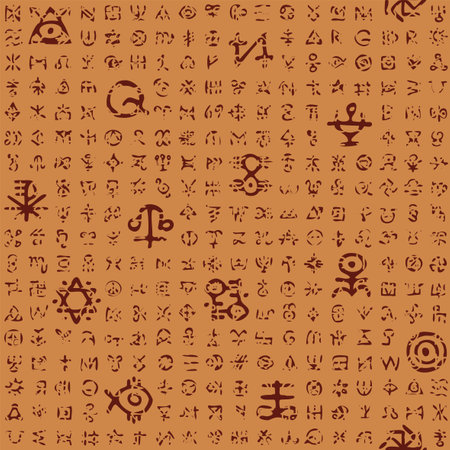Introduction to House Systems in Astrology
Astrology, with its rich tapestry of methods and interpretations, places significant emphasis on house systems—frameworks that divide the birth chart into twelve segments, each representing different areas of life. These divisions are not merely technical details; they shape how astrologers interpret a person’s character, experiences, and potential. Across the world, various house systems have gained popularity, each offering unique perspectives and subtle nuances. Within the United Kingdom, the choice of house system is more than a matter of personal preference—it reflects both historical tradition and modern astrological practice. British astrologers often engage in spirited discussions about which system best captures the complexities of individual lives, making the topic especially pertinent for anyone interested in astrology’s evolution within the UK context. This article offers an overview of prominent house systems and explores their significance, setting the stage for a deeper dive into which approaches are most widely embraced by the UK astrological community.
2. Placidus: The UK’s Traditional Favourite
The Placidus house system has long held a special place in British astrology circles, earning its reputation as the UK’s traditional favourite. Named after the 17th-century Italian monk Placidus de Titis, this system divides the sky into twelve unequal segments based on the time it takes for the Ascendant to reach each successive cusp. Its widespread adoption in Britain can be traced back to its practical integration into popular ephemerides and educational materials, especially throughout the 19th and 20th centuries.
Why has Placidus been so historically favoured in the UK? Several key factors stand out:
| Reason | Description |
|---|---|
| Historical Precedence | Most British astrology texts and courses have used Placidus since Victorian times, making it the default for generations of astrologers. |
| Availability of Resources | British ephemerides, tables of houses, and software have traditionally prioritised Placidus, further entrenching its use. |
| Cultural Familiarity | Many UK-based astrologers and their clients expect readings to use this system, reinforcing its status as a norm. |
Placidus also shapes astrological interpretations in distinct ways. Because house sizes vary considerably—especially at higher latitudes like Scotland or northern England—certain life areas might appear more prominent or less emphasised in a chart. For example, someone born in Edinburgh might find that one house (such as the twelfth) dominates much of their chart, which can significantly influence how an astrologer interprets psychological themes or life events.
Despite periodic debates about accuracy and fairness across different latitudes, many seasoned British astrologers still prefer Placidus for its nuanced division of personal experience and timing. In summary, while other systems are gaining ground, Placidus remains deeply woven into the fabric of UK astrological tradition.

3. Whole Sign and Modern Alternatives
The whole sign house system, though ancient in origin, has seen a striking resurgence among British astrologers in recent years. Unlike Placidus, which divides houses based on time and latitude, the whole sign approach assigns each zodiac sign to an entire house, making for a clear and visually straightforward chart layout. This simplicity is one of its main appeals, especially for those new to astrology or anyone seeking to minimise calculation complexities.
In the UK, where traditional Placidus usage still dominates, modern practitioners are increasingly open to experimenting with other systems. The whole sign method is particularly favoured among younger astrologers and those interested in Hellenistic astrology’s revival. Its transparent logic—each house equals one sign—resonates with those who value clarity over technical intricacies.
Beyond whole sign, other modern alternatives are also gaining attention. Equal house, Porphyry, and even the innovative Koch system have found advocates within British astrological circles. These systems often promise greater consistency or address perceived shortcomings of quadrant-based methods like Placidus. For example, equal house ensures all houses are exactly thirty degrees, reducing distortions at extreme latitudes—a practical consideration in the UK’s northerly locations.
This growing openness reflects broader trends in British astrology: a willingness to question tradition, engage with global developments (such as translations of classical texts), and adapt techniques that best fit contemporary needs. The rise of online communities and accessible software tools has further fuelled this experimentation, making it easier than ever for astrologers across the UK to compare approaches and select what works best for their practice.
4. Cultural Preferences and Influences in the UK
When analysing the popularity of astrological house systems in the United Kingdom, it is essential to consider the unique cultural backdrop and historical context that shape British preferences. The UKs long-standing traditions in both science and mysticism have led to a pragmatic yet open-minded approach to astrology, with a subtle interplay between scepticism and curiosity. This duality influences which house systems gain traction among practitioners and enthusiasts.
Historical Context and Academic Influence
The British Isles have a rich history of academic inquiry, particularly during the Enlightenment and Victorian eras when astrology was both scrutinised and explored with scientific rigour. This has fostered an environment where house systems perceived as methodical or mathematically robust, such as Placidus, are often favoured by traditional astrologers. The institutional legacy of British universities and societies continues to impact the methodologies taught and adopted across generations.
Cultural Attitudes Toward Astrology
British society tends to value empiricism and reasoned debate, leading many astrologers to prefer systems that offer logical consistency or are supported by historical precedent. While there is a growing interest in holistic and psychological approaches—partly influenced by global trends—the core of UK astrology remains anchored in methods viewed as reliable or tried-and-tested. This is reflected in the enduring popularity of Placidus among established practitioners, although Whole Sign houses are gaining visibility through younger and more experimental astrologers.
Comparative Table: House System Preferences
| House System | Perceived Strengths (UK Perspective) | Main User Base | Cultural Resonance |
|---|---|---|---|
| Placidus | Mathematical precision, tradition, mainstream acceptance | Professional/traditional astrologers | High – aligns with academic history |
| Whole Sign | Simplicity, clarity, ancient roots | Younger/experimental astrologers | Moderate – appeals to revivalist/alternative circles |
| Koch & Others | Niche applications, technical detail | Specialist astrologers/researchers | Low – less widespread recognition |
Impact of British Media and Public Discourse
The way astrology is presented in British newspapers, magazines, and online platforms also plays a significant role. Popular publications often default to mainstream systems like Placidus for ease of interpretation and consistency with existing literature. However, podcasts and social media communities now provide platforms for alternative house systems to reach wider audiences, reflecting shifts in cultural openness while still respecting the nations analytical traditions.
5. Which House System is Most Popular in the UK?
When it comes to house systems, UK astrologers and astrology enthusiasts have a diverse range of preferences, but some clear patterns do emerge. Recent surveys within British astrological communities, such as those conducted by the Astrological Association of Great Britain, suggest that the Placidus system remains the most widely used and taught method among both professional and amateur astrologers in the UK. This popularity is rooted partly in tradition: most mainstream astrology books and teaching materials available in Britain default to Placidus, making it a familiar starting point for many learners.
However, there is growing interest in alternative house systems. Whole Sign Houses, for example, have gained traction over the past decade, particularly among those influenced by the revival of Hellenistic astrology and online communities where international trends circulate quickly. Some British astrologers cite the clarity and simplicity of Whole Sign Houses as reasons for exploring or switching to this method, especially when working with traditional techniques or clients seeking straightforward chart interpretations.
Other systems like Koch, Equal House, and Campanus also have their advocates, often among more experienced practitioners who enjoy experimenting or tailoring their approach to different client needs. Nonetheless, statistical data from leading UK astrology conferences (such as the annual Astrological Association Conference) consistently show that Placidus dominates usage—often accounting for upwards of 60% of charts cast by participants.
Trends Among UK Astrologers
Conversations with well-known UK-based astrologers reveal a pragmatic approach: while many start with Placidus due to its accessibility, a significant proportion explore alternatives as they deepen their practice. There is also a generational shift underway; younger astrologers are more likely to experiment with Whole Sign or Equal House methods after encountering them via social media or international teachers.
Expert Opinions
Respected figures such as Deborah Houlding and Frank Clifford note that no single system can claim universal superiority—each has strengths and limitations depending on the context and philosophical outlook of the astrologer. That said, most agree that familiarity and ease-of-use keep Placidus at the forefront in the UK, though curiosity about other systems continues to grow.
Summary
In summary, while Placidus remains the dominant house system among UK astrologers, there is an unmistakable trend towards experimentation and personalisation. The landscape is gradually diversifying as more practitioners seek out systems that resonate with their unique interpretive style and philosophical orientation.
6. Practical Implications for UK Astrologers and Enthusiasts
When it comes to astrological practice in the UK, the choice of house system has tangible effects on both interpretation and client experience. The most popular systems—Placidus and Whole Sign—offer distinct perspectives, and each can subtly shift the narrative of a birth chart. For astrologers, understanding these differences is essential; what might be a 10th house Sun in Placidus could shift to the 11th house in Whole Sign, altering career readings into those about community or networks.
Impact on Astrological Interpretation
In practical terms, the chosen house system determines which life areas are highlighted or downplayed. For example, UK astrologers working with clients from diverse backgrounds may find that Placidus resonates well with those accustomed to psychological astrology, while Whole Sign may appeal to those interested in traditional or Hellenistic methods. This distinction can shape not only how charts are read but also how astrology is perceived by clients—either as a nuanced psychological tool or as a structured map of fate.
Navigating Local Preferences
For those new to astrology in Britain, it’s wise to explore the house systems used by respected local practitioners and teachers. Many UK-based astrology schools and professional organisations favour Placidus for its historical prevalence, but there is growing interest in Whole Sign among younger astrologers and those engaging with global communities online. Attending local workshops or online webinars can help you experience different approaches firsthand.
Tips for Choosing Your House System
If you’re deciding which house system to use in your own practice or study, consider starting with your own chart: compare interpretations using Placidus and Whole Sign, and note which feels more accurate or insightful. Engage with UK astrology forums or social media groups to discuss experiences with both systems. Importantly, be flexible—a good astrologer adapts their methods to best serve the client’s needs and context. Over time, you may find that you develop a preference for one system, or even switch between them depending on the question at hand.
Ultimately, the “best” house system is the one that supports clear, honest readings and resonates with both astrologer and querent. In the diverse landscape of UK astrology, openness to experimentation and dialogue is key—there’s no single right answer, only what works best for you and your community.

